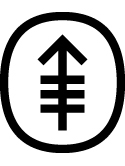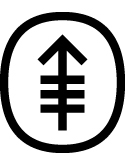Interferon-α, zidovudine, and granulocyte-macrophage colony-stimulating factor: A phase I AIDS clinical trials group study in patients with Kaposi's sarcoma associated with AIDS Journal Article
| Authors: | Krown, S. E.; Paredes, J.; Bundow, D.; Polsky, B.; Gold, J. W. M.; Flomenberg, N. |
| Article Title: | Interferon-α, zidovudine, and granulocyte-macrophage colony-stimulating factor: A phase I AIDS clinical trials group study in patients with Kaposi's sarcoma associated with AIDS |
| Abstract: | Purpose: To increase the hematologic tolerance of interferon-α (IFNα) and zidovudine combination therapy by the addition of granulocyte-macrophage colony-stimulating factor (GM-CSF), and to evaluate the safety, tolerance, and potential efficacy of the combination in patients with Kaposi's sarcoma and AIDS. Patients and Methods: Seventeen patients with Kaposi's sarcoma associated with AIDS received zidovudine 200 mg orally every 4 hours and GM- CSF 5 μg/kg/d subcutaneously. Successive cohorts received IFN-α2b at a daily subcutaneous dose of 5, 10, or 20 million units. The dose of GM-CSF was titrated to maintain the neutrophil count between 1 and 5 x 109 cells/L. Doses of all three drugs were reduced, as required, for nonhematologic toxicities. Results: GM-CSF induced leukocytosis in all patients. On average, a dose of 1.25 μg/kg/d was sufficient to maintain the neutrophil count within the desired range. The combination of 20 million units of IFN-α with zidovudine and GM-CSF induced dose-limiting toxicity in four of six patients. The major side effects were constitutional symptoms, which included malaise, anorexia, fatigue, fever, and were dose-limiting in three patients. Severe anemia and/or thrombocytopenia developed in three patients. Seven patients (41%; 95% confidence interval [CI], 18% to 64%) showed objective tumor regression that persisted for a median of 51 weeks. A rapid decrease in free- serum p24 antigen levels was observed in seven patients who had measurable levels at baseline; the mean time required to isolate human immunodeficiency virus (HIV-1) from peripheral-blood cells was increased by 7 days. The number and percentage of CD4-positive lymphocytes showed no significant change. Conclusions: GM-CSF prevents neutropenia induced by the IFN-α and zidovudine combination and induced no adverse effects on immune function or HIV activity. However, nonhematologic toxicity precluded a major increase in the maximum-tolerated doses of IFN-α and zidovudine. |
| Keywords: | adult; clinical article; fatigue; drug efficacy; disease association; anemia; gastrointestinal symptom; thrombocytopenia; combination chemotherapy; fever; insomnia; depression; cancer regression; immunotherapy; acquired immune deficiency syndrome; headache; kaposi sarcoma; phase 1 clinical trial; drug tolerance; recombinant granulocyte macrophage colony stimulating factor; oral drug administration; zidovudine; virus isolation; recombinant alpha2b interferon; maximum permissible dose; subcutaneous drug administration; human; male; priority journal; article |
| Journal Title: | Journal of Clinical Oncology |
| Volume: | 10 |
| Issue: | 8 |
| ISSN: | 0732-183X |
| Publisher: | American Society of Clinical Oncology |
| Date Published: | 1992-08-01 |
| Start Page: | 1344 |
| End Page: | 1351 |
| Language: | English |
| DOI: | 10.1200/jco.1992.10.8.1344 |
| PUBMED: | 1634925 |
| PROVIDER: | scopus |
| DOI/URL: | |
| Notes: | Article -- Source: Scopus |
Altmetric
Citation Impact
BMJ Impact Analytics
MSK Authors
-
 69
69Polsky -
 156
156Krown -
 73
73Gold -
 56
56Flomenberg
Related MSK Work


